Seagate finalised their acquisition of Conner Peripherals in 1996, bringing together two heavyweights in the hard drive industry. As a result, the Seagate ST3211A is, in all but one aspect, purely a Conner Peripherals CFS210A. The CFS210A has a long-history, being a very important low-cost drive in the mid-1990’s. Conner’s classic tub design would (and still does) resonate with nostalgia for many, being an incredibly common design to find in OEM machines.
This particular unit, while stating it was produced in 1998, likely has a much longer history behind it.
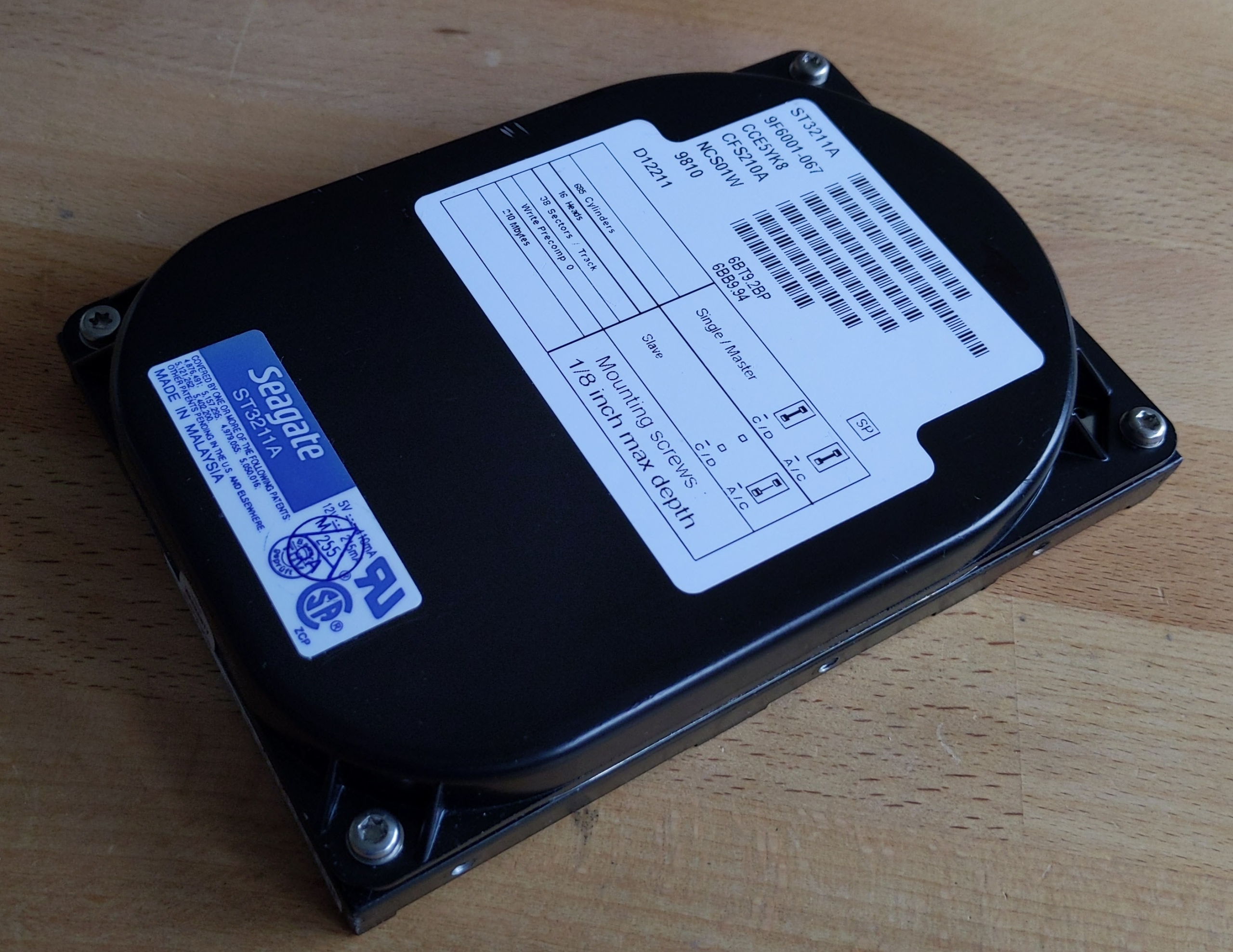
Drive Attributes ------------------------------------- Seagate ST3211A ------------------------------------- Capacity 210MB Mfc Date 1998-3 (week 10) Format 3.5" Interface PATA Platters 1 Heads 2 Cache 32KB RPM 3600 Origin Malaysia (ST, ex-CP) -------------------------------------
Like any other CFS210A, the ST3211A sports a single platter, 210MB in density. The CFS420A would offer the same platter density, yet with two platters instead, also being branded under Seagate with the ST3420A.
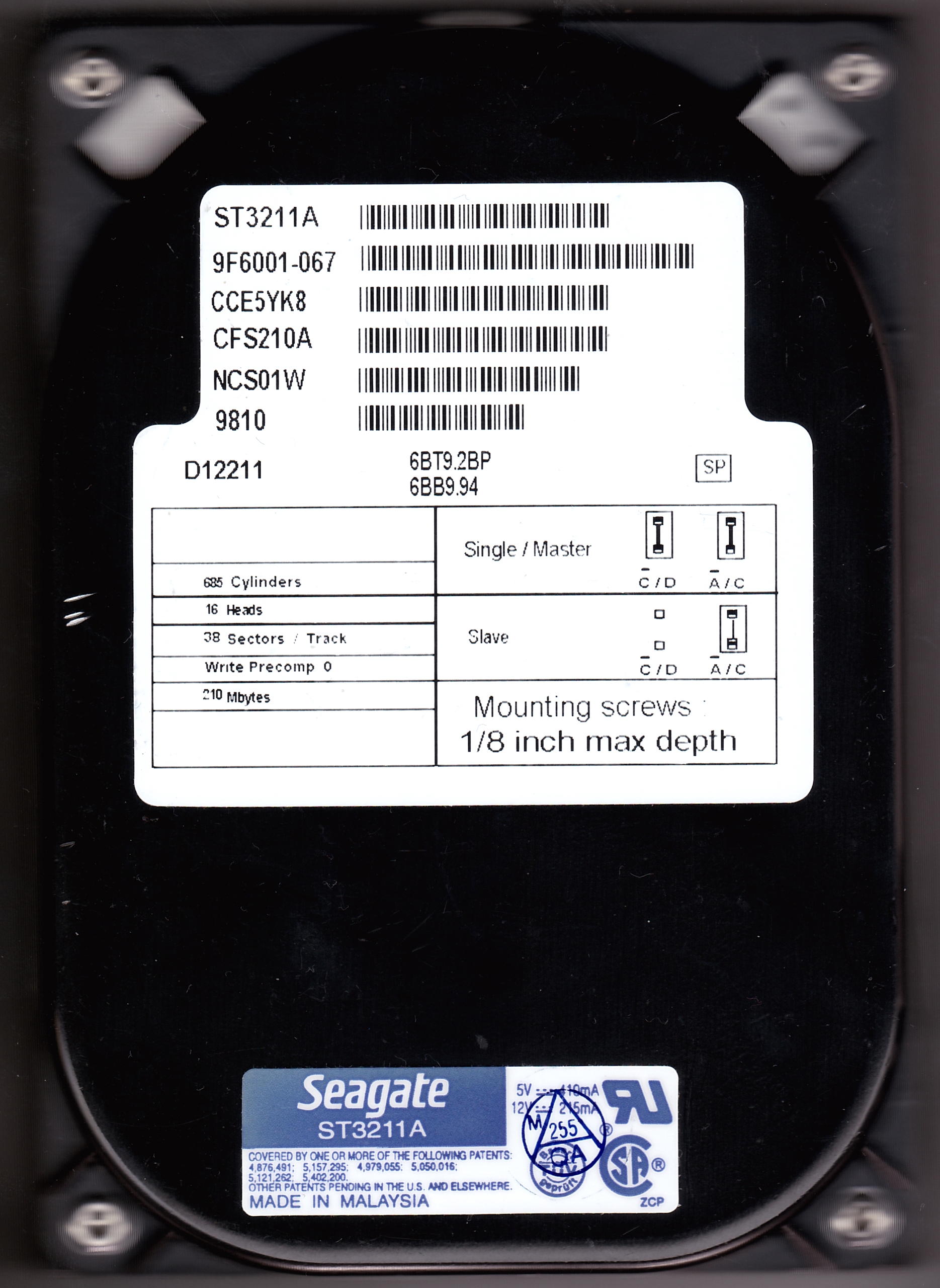
Clearly stating production hailing from Malaysia, this drive is most certainly a Conner. However, seeing the classic Seagate logo in place of the original is quite a sight. Comparatively, the labels on this unit feel a lot cheaper compared to equivalent Conner-branded units, alongside the bottom logo having faded somewhat.
When this drive was discovered, it was still sealed in its original packaging. It had been scratched somewhat as seen above, but its background is certainly unknown.
One last thing of note is that the upper label still states “CFS210A”, which even without obvious comparison, confirms the background of these units.
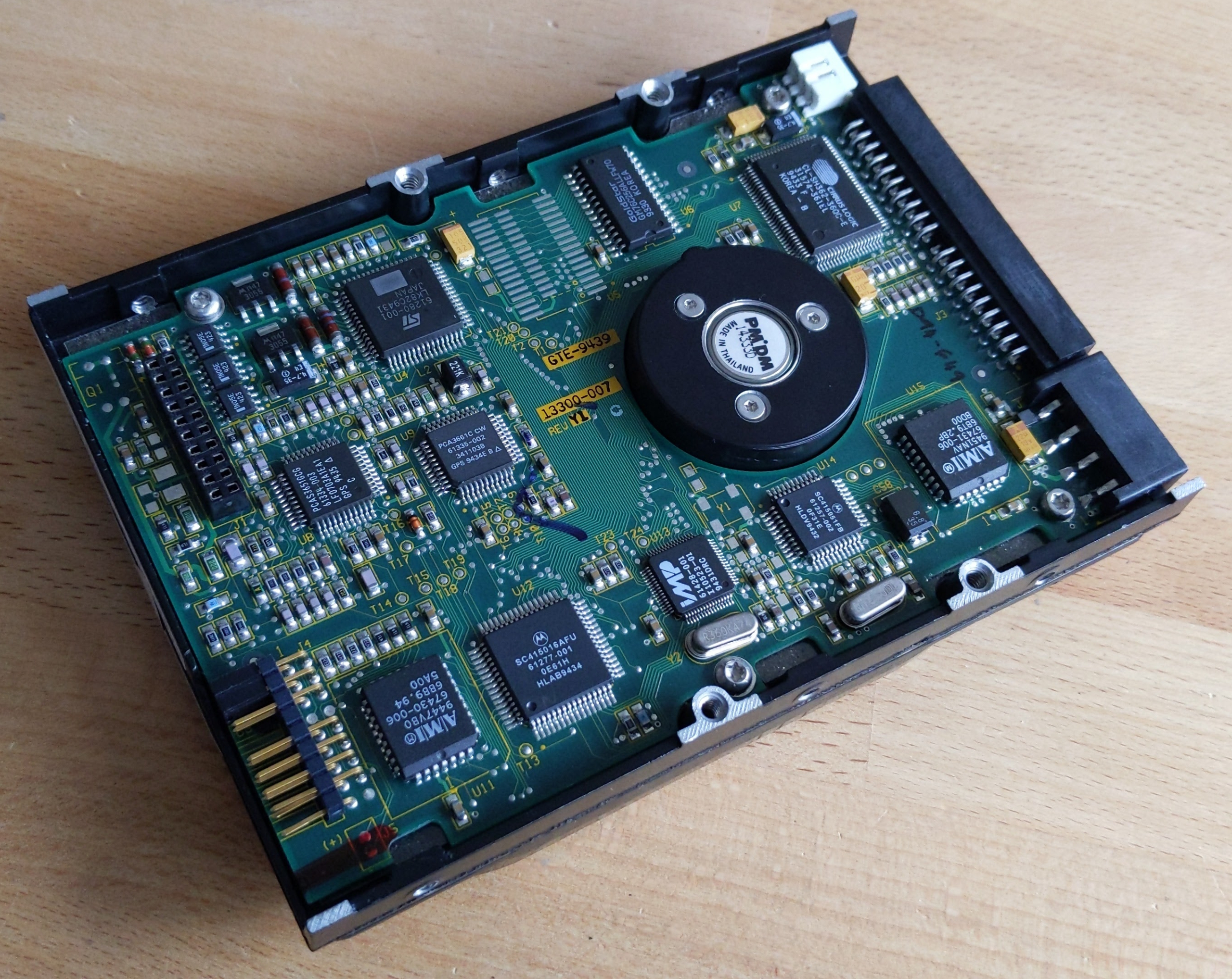
The rear side is as Conner as it gets, with no Seagate influences to be seen. We’ll dive into that further when addressing the PCB below.
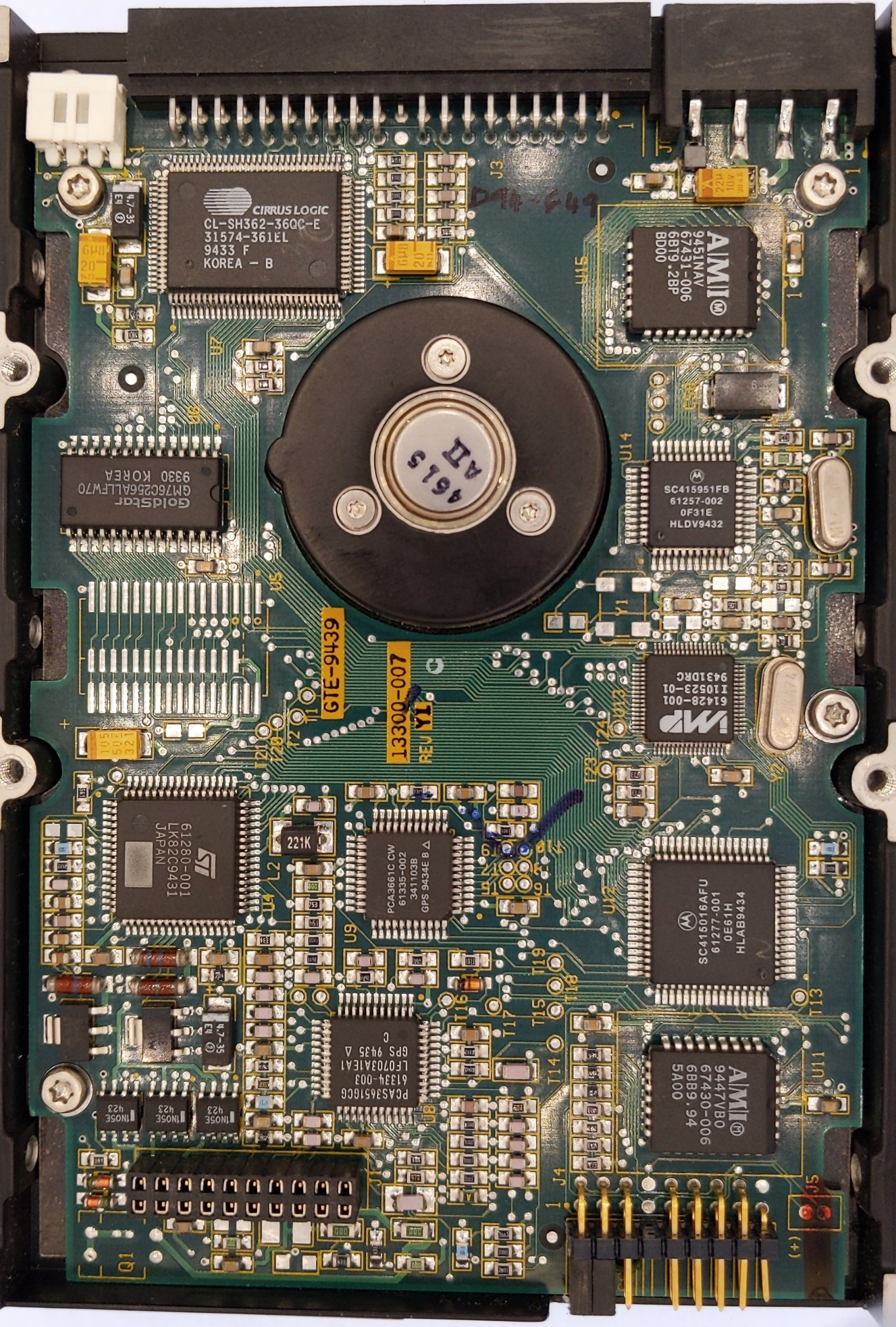
The PCB remains unchanged, with IC’s stating a manufacturing date of mid-1994 as the latest time-point for this drive. It begs the question, were these units simply re-certified/RMA’d CFS210A’s, or did Seagate utilise an old tooling set with remaining parts? That remains unclear, but it would seem fairly unlikely that Seagate would produce any of these two years past the acquisition (not to mention, 210MB in 1998 is not an incredible amount of space!).
Logically, the standard 32KB of buffer memory is from Goldstar (now LG), Cirrus Logic for the interface adapter, flash memory from AMI alongside a number of other unbranded chips. For more detail on this PCB design, you can check out my post on the CFS210A’s. (TBA)
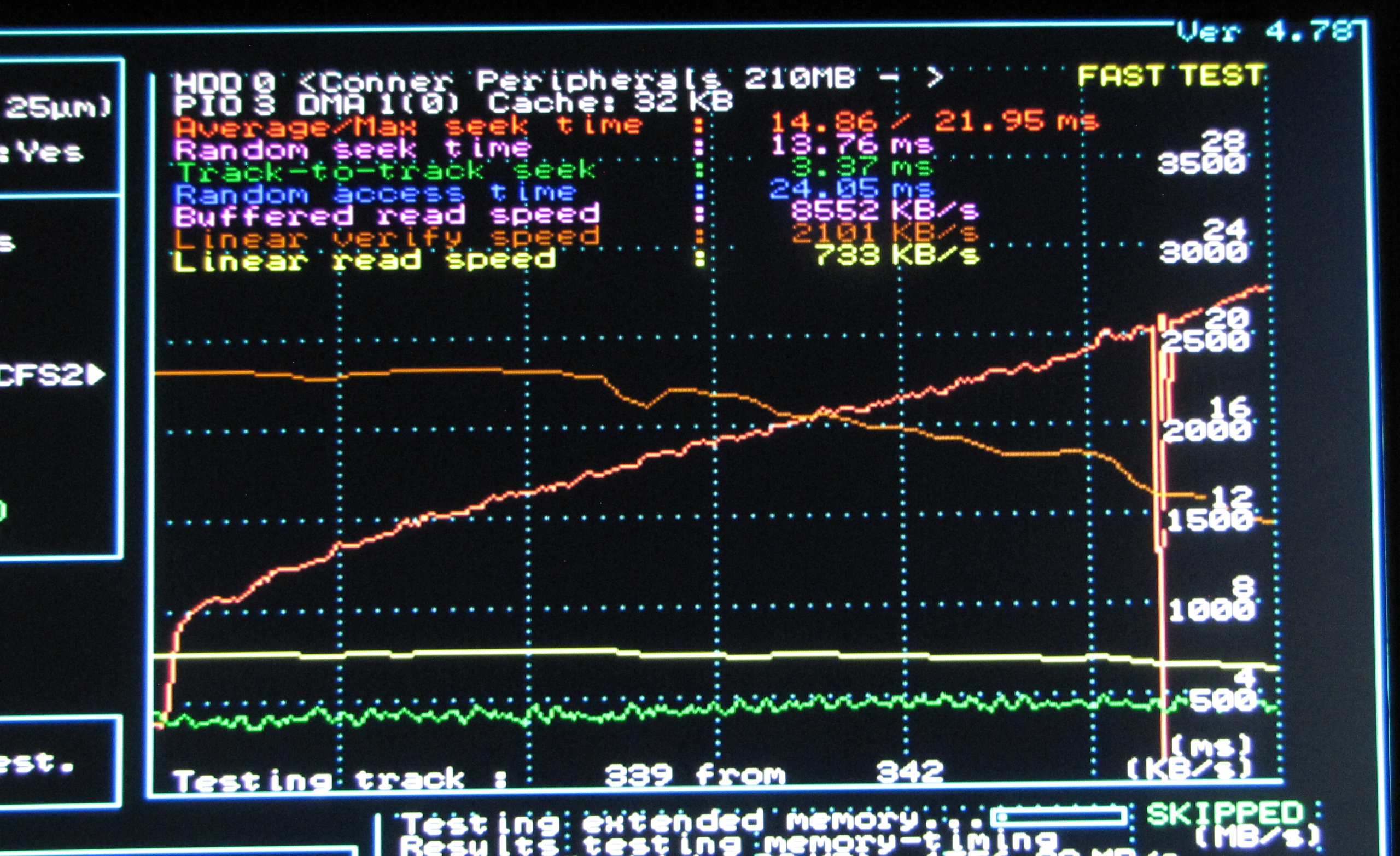
Performance is as expected, nothing revolutionary, alongside this drive having a few issues near the end of the surface. Seagate clearly didn’t bother to change the identification model, where this drive still denotes itself as a Conner Peripherals CFS210A.
Overall, the Seagate branded CFS210A is an interesting one. The story behind these is full of holes, but it is certainly quite fascinating to see their logo on such an iconic Conner design.
If you missed the video I made on this drive, you can find it here: